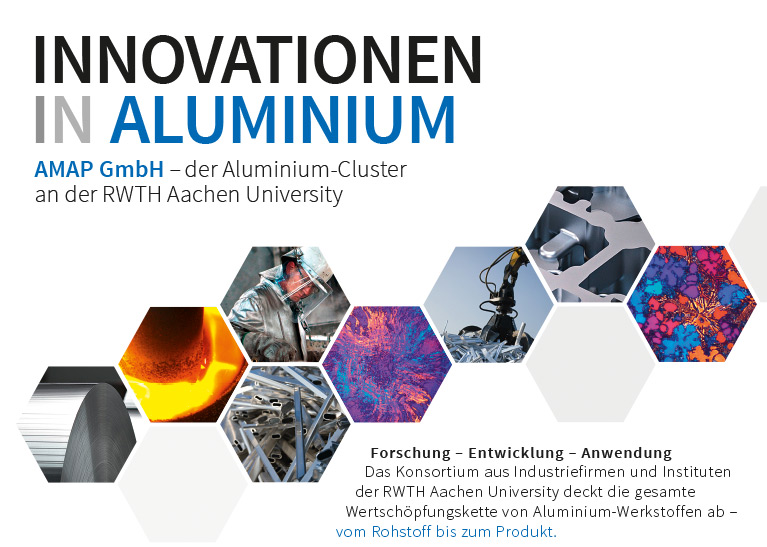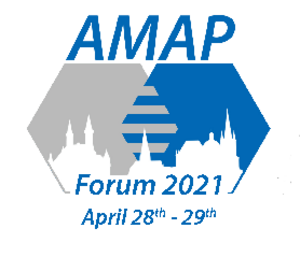Keynote Speech III - Aluminum Recycling in the Context of Process and Product Efficiency.
Georg Rombach
Hydro
Summary
The opening speech “Green processing and metal recycling” by Georg Rombach from aluminum manufacturer Hydro focused on what the path to climate-neutral aluminum production can look like and what role material recycling plays in this.
“Thanks to renewable energy and modern technology, we are able to produce cleaner aluminium than ever before,” emphasized Rombach. With Hydro Reduxa, the manufacturer already offers certified, low-carbon aluminum with a maximum carbon footprint of 4 kg CO2 per kg of aluminum.
An effective way to further reduce the carbon footprint of production is to use aluminum scrap to manufacture recycled alloys and products. Under the product name “Circal”, Hydro has launched a range of top-quality aluminum alloys on the market that consists of at least 75% end-of-life scrap.
In the automotive industry alone, the raw materials steel and aluminum account for around 80% of CO2 emissions from vehicle production. Recycling is the most effective way to decarbonize the material footprint, as Rombach emphasizes. In the Hydro expert's experience, scrap from products containing aluminum, such as cans or cars, is a clear substitute for primary metal.
Hydro operates 29 recycling plants with a combined capacity of around 2.6 million tons per year. The good material properties and high recycling rates of secondary aluminum make this material an indispensable and future-oriented raw material for numerous areas of application such as the automotive, packaging and construction industries. Hydro is working on new concepts and plants to realize environmentally friendly recycling processes with the highest possible overall efficiency.
Depending on the application of the aluminum, decorative or protective coatings are often applied, which are then found on the secondary materials. These mostly organic coatings influence the remelting losses or the dross formation behavior during recycling, resulting in reduced yields. Furthermore, unwanted emissions can occur due to the carbonization gases formed. Recycling expert Rombach presented a new process for the thermal paint stripping of aluminum scrap with minimal energy consumption.
Thermal paint stripping takes place in a counter-current furnace using continuous thermal pyrolysis according to the IDEX principle. The combustion gases enter the furnace through a central pipe parallel to the scrap and hit a curved shield that guides the gas back through the furnace in counterflow. The heat of the gases vaporizes the organic components in the scrap in a low-oxygen atmosphere. Carbon-containing residues are burned at the end of the furnace with the residual oxygen. The advantages of this technology with minimal emissions are high metal quality, excellent organic removal and minimal energy consumption thanks to the reuse of the energy released during the combustion of pyrolysis gases.
Impurities have a significant impact on the overall process and therefore on the quality of the secondary aluminum products. In order to increase the recovery and recyclability of aluminum scrap, sorting is required before the smelting process, i.e. either the purification of a main material stream or the separation into different recyclable fractions. Depending on the source and the associated degree of impurities, metallic such as Fe, Cu, Zn, non-metallic such as stones and dust, organic paints, coatings and oils as well as impurities of an inorganic nature (oxides), different sorting steps are required.
Sorting residues are not of great interest for aluminum production, but increase the profitability of pure sorting into Fe scrap, plastics and heavy metals. The aim is a high recovery rate combined with high purity
As expert Rombach went on to explain, Hydro is working on implementing new technologies for recycling various scrap sources and has developed a new sorting technology in the form of LIBS sorting. Hydro has been operating a prototype sorting machine at the R&D center in Bonn since summer 2017 and a pilot plant has been in operation in Dormagen since 2020.
In summary, Rombach notes that the availability of aluminum scrap will increase significantly, but will be unevenly distributed according to quality. However, increased competition for “greener” products requires a clear definition of the material composition. In order to counter a high proportion of organically contaminated materials, efficient thermal pre-treatment is required. With LIBS-based sorting, Hydro meets the high purity requirements of the sorted fractions for remelting in a closed loop. The mixing tools still being developed are complementary to ensure the usability of scrap in the foundry system.


